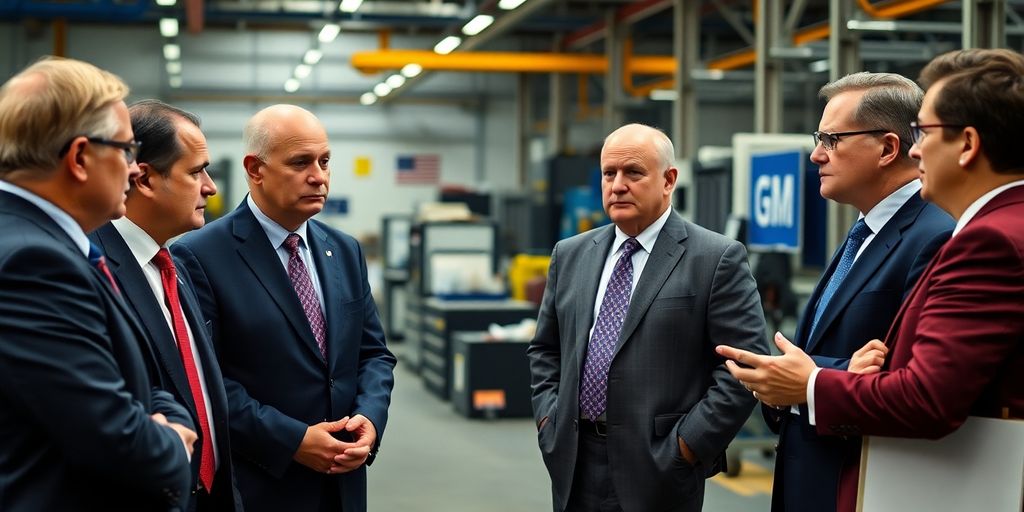Ford’s Chairman, Bill Ford, and General Motors’ CEO, Mary Barra, are set to meet with U.S. officials to discuss the significant impacts of tariffs on the automotive industry. This meeting comes amid growing concerns about how trade policies are affecting American car manufacturers and their global competitiveness.
Key Takeaways
- Bill Ford will meet in person with government officials in Washington.
- Mary Barra will participate in discussions, potentially through virtual means.
- The focus will be on the effects of current tariffs and trade policies on the automotive sector.
- Both companies have refrained from commenting on the specifics of the meetings.
Background on Tariffs and the Automotive Industry
The automotive industry has been under pressure due to various tariffs imposed in recent years. These tariffs have affected the cost of raw materials and components, leading to increased production costs for manufacturers. Key points include:
- Increased Costs: Tariffs on steel and aluminum have raised the cost of manufacturing vehicles.
- Supply Chain Disruptions: Trade policies have led to uncertainties in supply chains, affecting production schedules.
- Consumer Prices: Higher production costs may lead to increased prices for consumers, potentially reducing demand.
The Importance of the Meeting
This meeting is crucial for several reasons:
- Industry Representation: Ford and GM are two of the largest automakers in the U.S., and their voices carry significant weight in discussions about trade policy.
- Economic Impact: The automotive industry is a major contributor to the U.S. economy, employing millions and influencing various sectors.
- Future Policies: Outcomes from this meeting could shape future trade policies and tariffs, impacting the industry for years to come.
Potential Outcomes
While the specifics of the discussions remain under wraps, several potential outcomes could arise from the meeting:
- Policy Adjustments: U.S. officials may consider adjustments to existing tariffs based on feedback from industry leaders.
- Support for Domestic Manufacturing: There may be discussions on initiatives to support domestic manufacturing and reduce reliance on foreign imports.
- Long-term Strategies: The meeting could lead to the development of long-term strategies to enhance the competitiveness of U.S. automakers in the global market.
Conclusion
As Ford and GM executives prepare to engage with U.S. officials, the automotive industry watches closely. The discussions are expected to address critical issues that could influence the future of manufacturing in America. With the stakes high, the outcomes of this meeting could have lasting implications for both companies and the broader economy.













Leave a Reply